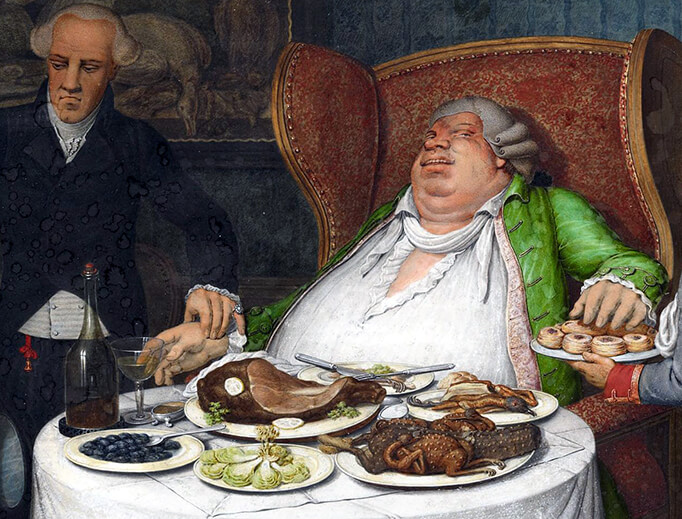Today we continue our article series on the 7 Deadly Sins. Today we look at the first 2 sins - Lust and Gluttony.
Lust And Gluttony: Sin #1 - Lust
Lust can be defined as 'uncontrolled desire'. Within the religious sphere, it most often applies to sexuality, but can also be a 'lust for power' or 'lust for life'.
Whilst lust is a mental process, as we all know, thoughts can motivate actions that have effects on both the individual and others.
There are a few obvious signs of sexual lust:
- the individual focuses solely on someone's looks and body
- the desire is for sex and nothing else
- real feelings are avoided and there is a focus on fantasy
- there is no desire for the couple to remain together beyond sex
- the couple develops no real bonds of friendship
It could be said that these could apply to non-sexual lust. For instance, if someone has an obsession for their hobby, the focus is solely on the hobby to the exclusion of all other aspects of life.
So let's apply our tests from Part 1 of this series:
Q: is the thought or feeling of lust detrimental to the individual?
A: It depends on a number of things. One is the intensity of the thought and the duration or frequency of the thought. Compounding this might be thoughts of guilt at having the feeling of lust, which may have been learned. These feelings can also be detrimental to the individual.
Furthermore if the desire is unfulfilled, there may be other associated undesired emotions such as anger and fear.
Additionally, as mentioned above, the obsessional behaviour may dominate the individual's life to the point that all other aspects are severely compromised.
Q: Is the thought of lust detrimental to other individuals?
A: This is the same for all thoughts. Thoughts themselves have no direct effect on others (unless you believe in telepathy!).
Q: is the action of lust detrimental to the individual?
Yes and No. If the lustful actions meet the desire, there is a benefit. But if the lust is never satisfied, it is uncontrollable, compromising the individual.
Q Is the action of lust detrimental to other individuals?
A: It can be. If the other individual is not appreciative of the behaviour but cannot reject it - either physically or mentally.

Lust And Gluttony: Sin # 2 - Gluttony
Greed is the most common synonym for gluttony. However, in the context of the 'Deadly Sins' gluttony strictly refers to eating in excess, rather than greed for other things (see the next Sin for that).
Given this strict definition, a number of factors can initiate gluttony. These can be broadly categorised into 2 - physiological and psychological.
Applying the 4 step test, let's see what we come up with.
Q: is the thought or feeling of gluttony detrimental to the individual?
A: Yes. In the mind of the individual, they can never get enough food and are thus never satisfied. The individual is obsessed with food and its procurement to the exclusion of all other activities.
Q: Is the thought or feeling of gluttony detrimental to other individuals?
A: As before, thoughts or feelings do not affect other individuals.
Q: Is the action of gluttony detrimental to the individual?
It most usually is. Overeating leads to weight gain and other physiological problems. These affect the health and wellbeing of the individual.
Q: Is the action of gluttony detrimental to other individuals?
A: Not usually. However, in a group situation where resources are limited, gluttony by one or more members is detrimental to the group as a whole. Even when resources are less limited, stealing another's food is still detrimental.
Lust and Gluttony: Conclusion
In the two 'sins' above there is a common thread. This is a kind of obsessional behaviour that has effects on both the individual and others.
Next Article: Greed Sloth and Wrath – 7 Deadly Sins Part 3
Previous Article: Do The 7 Deadly Sins Actually Do Harm?

